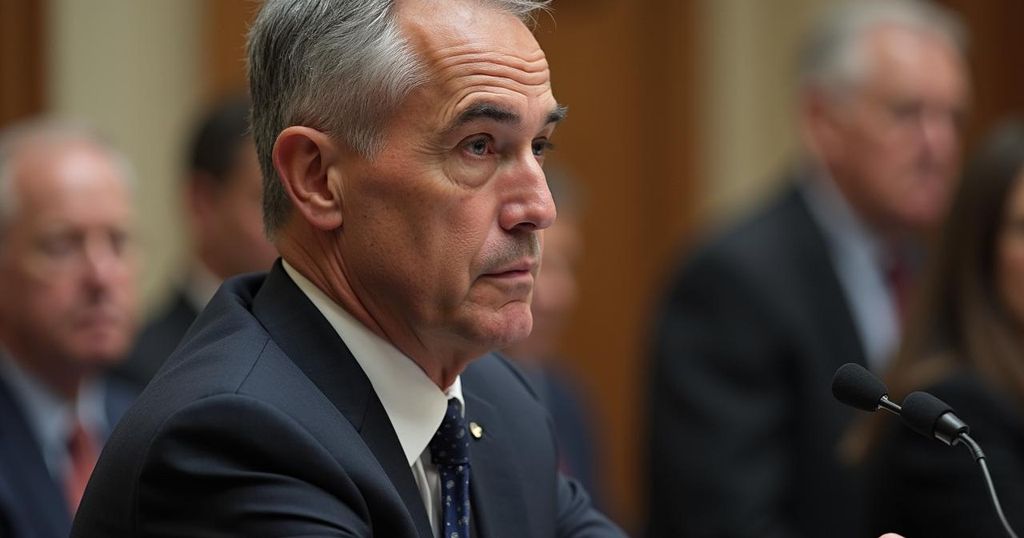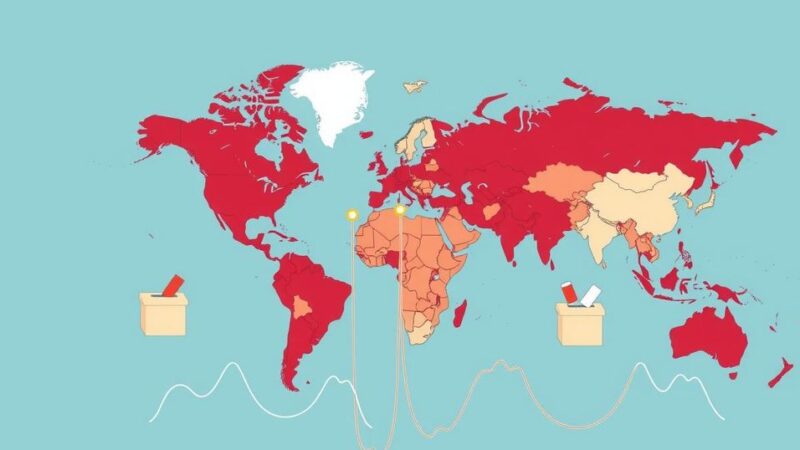House Republicans issued a report blaming President Biden for the chaotic U.S. withdrawal from Afghanistan, minimizing Donald Trump’s role despite his previous agreement with the Taliban. The report details failures in preparation and decision-making leading up to the withdrawal, which left many individuals at risk under Taliban control. It concludes that both Trump and Biden share culpability, though it primarily scrutinizes Biden’s administration for inadequate planning and response.
On Sunday, House Republicans released a critical report attributing the tumultuous conclusion of the U.S. withdrawal from Afghanistan to President Joe Biden’s administration, while downplaying the involvement of former President Donald Trump, who had previously signed the withdrawal agreement with the Taliban. The document outlines failures in both military and civilian sectors during the final phases of the withdrawal, emphasizing how Trump’s February 2020 deal inadvertently facilitated the swift resurgence of the Taliban across Afghanistan before the final American departures on August 30, 2021. This chaotic exit resulted in the abandonment of numerous American citizens, Afghan allies, and individuals at risk of Taliban reprisals. Despite the exhaustive scrutiny already surrounding this issue, the report did not introduce significant new information. Previous analyses have clearly indicated that the failures span multiple presidential administrations, attributing blame to both Biden and Trump. Texas Republican Representative Michael McCaul, who led the investigation, argued that the Biden administration had ample information and opportunities to plan for the impending collapse of the Afghan government to facilitate a secure evacuation for U.S. personnel and allies. He lamented that the administration prioritized public perception over security measures. A White House spokesperson dismissed the report, asserting it was based on selective facts and misleading interpretations, highlighting that Biden inherited a problematic situation from Trump’s prior agreement with the Taliban. Democrats countered that the GOP’s narrative unjustly obscured Trump’s part in the withdrawal’s challenges. The over-18-month investigation focused predominantly on the events preceding the troop removal, alleging that the Biden administration disregarded warnings from senior officials as the Taliban’s offensive proceeded at an unprecedented pace. The report cited limited consultation with military and civilian leaders leading up to the withdrawal, claiming that significant decisions were made primarily by National Security Adviser Jake Sullivan. Furthermore, the report underscored the precariousness of U.S. embassy staff in Kabul, with assertions that the Biden administration’s insistence on maintaining a robust diplomatic presence hindered proper risk management. While the GOP report places significant fault on the current administration, it does recognize Trump’s initial decisions regarding troop levels, suggesting that recommendations from military leadership influenced his approach to the withdrawal process.
The report released by House Republicans comes amid ongoing political discourse surrounding the U.S. withdrawal from Afghanistan, a decision that saw the end of nearly two decades of military engagement initiated in response to the September 11, 2001, terrorist attacks. The U.S. government’s withdrawal was marked by chaos and emergency evacuations, drawing criticism from various quarters. The political narrative has since evolved, with parties seeking to position blame and responsibility amidst significant public scrutiny and impending electoral considerations.
In summary, the House Republican report underscores the complexities and disputes surrounding the withdrawal from Afghanistan, attributing significant responsibility to President Biden while attempting to exonerate former President Trump. This ongoing debate reflects broader partisan divides and the challenges of addressing a multifaceted foreign policy failure that continues to impact numerous lives in the region.
Original Source: www.pbs.org






